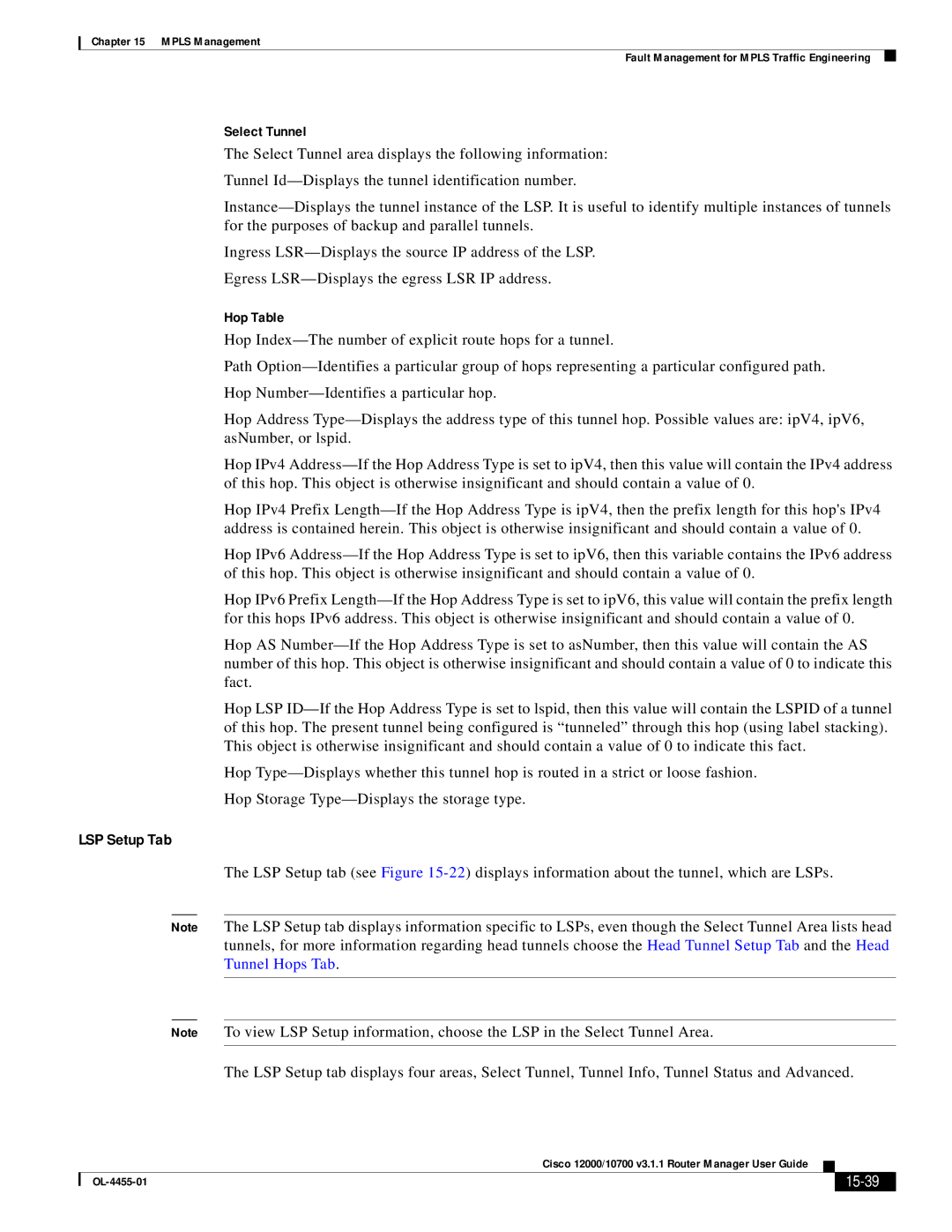
Chapter 15 MPLS Management
Fault Management for MPLS Traffic Engineering
Select Tunnel
The Select Tunnel area displays the following information:
Tunnel
Ingress
Egress
Hop Table
Hop
Path
Hop
Hop Address
Hop IPv4
Hop IPv4 Prefix
Hop IPv6
Hop IPv6 Prefix
Hop AS
Hop LSP
Hop
Hop Storage
LSP Setup Tab
The LSP Setup tab (see Figure
Note The LSP Setup tab displays information specific to LSPs, even though the Select Tunnel Area lists head tunnels, for more information regarding head tunnels choose the Head Tunnel Setup Tab and the Head Tunnel Hops Tab.
Note To view LSP Setup information, choose the LSP in the Select Tunnel Area.
The LSP Setup tab displays four areas, Select Tunnel, Tunnel Info, Tunnel Status and Advanced.
|
| Cisco 12000/10700 v3.1.1 Router Manager User Guide |
|
| |
|
|
| |||
|
|
|
|
| |
|
|
|
| ||
